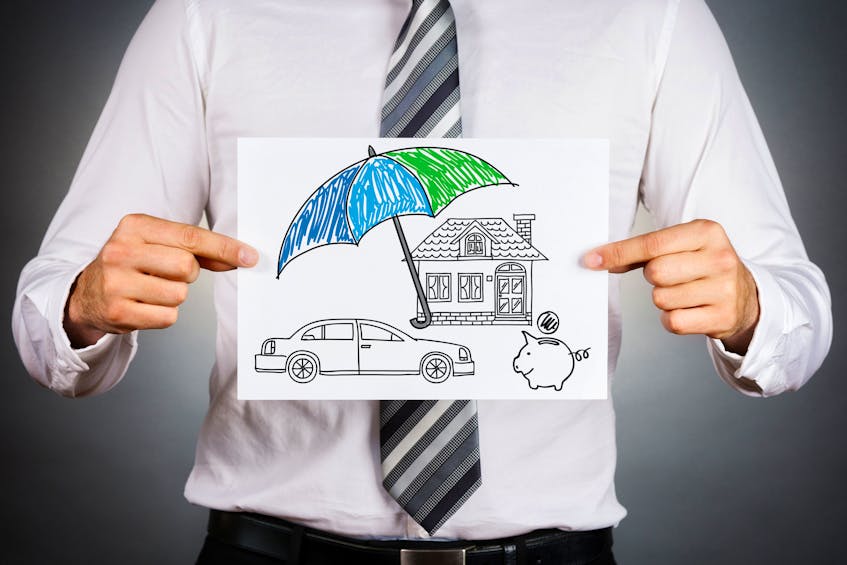Many Canadians who have seen changes to their work or home situations during the COVID-19 pandemic might want to have a conversation with their insurance company.
As of September, 25.6 per cent of Canadians working their normal hours are doing so from home - twice as many from before COVID-19 restrictions in March - according to the Canadian Labour Force.
This means less commuting, more business work at home and potential home updates — significant lifestyle changes that could save money.
Working from home
Insurance companies recognize the health benefit of working from home during COVID-19, says Amanda Dean, vice-president of the Insurance Bureau of Canada (IBC)’s Atlantic region. The IBC is the trade association representing home, auto and business insurance companies.
“If you are working from home, give your insurance representative a call just to see if anything needs to change with your particular policy because we all do something very different,” said Dean.

Any employees who take work equipment home should be aware of expectations set out by their workplace and its insurer. And people who intend to bring people into their home for business should notify their insurer and act within public health guidelines.
However, running a business at home is different from those working from home because of the pandemic, even for new businesses.
“It would typically require an additional at-home business endorsement on the homeowner policy or even a commercial policy, depending on what they're doing for work from home,” said Dean. “If you have couriers going to and fro, if you have a lot of equipment through your business, that type of thing.”
Atlantic Canadians often rely on vehicles for transportation. Using a car for commuting, personal errands or other purposes can make a difference in premiums, and if there has been a change, a different rate could be offered.
Some Nova Scotians who are considering participating in the ride-sharing economy should notify their insurance as well. Last month, the province adjusted licensing restrictions and Halifax approved rules allowing prospective ride-sharing businesses such as Lyft, Uber and Canadian-owned Uride to operate in the city.
“The worst calls that we get to our consumer information center are those from people who decided two years ago to cancel their home insurance policy to save a little bit of money, and they lose their home to a fire.
Those are the absolute worst calls to get because there's nothing we can do.”
Financial relief, knowing what to cover
During the initial stage of the pandemic, many insurers offered extensions and rebates to varying degrees throughout Canada as consumers adjusted financially, even though insurance rates were starting to increase before the pandemic.
“They were trying to figure out how to kind of offer relief as quickly as possible, because no one in the insurance industry planned for this, just like everybody else,” said Dean. “So, in many cases, those relief measures have ended because they were committed for a 90-day period.”
Those still worried about paying can evaluate their usage and have a conversation about rates — in some cases, discounts or bundling policies could be an option. For example, coverage could be lowered on a second vehicle that’s not seeing much use right now.
If anything, the most important items to insure are the assets or liabilities that, without, would leave someone in a financial pitfall. In Atlantic Canada, this is often a car or home, and not having insurance can have tremendous consequences.
“The worst calls that we get to our consumer information center are those from people who decided two years ago to cancel their home insurance policy to save a little bit of money, and they lose their home to a fire,” said Dean. “Those are the absolute worst calls to get because there's nothing we can do.”
Atlantic Canadians saw a major shortage of home building supplies the summer as people made changes to their homes. In the excitement of those updates, homeowners might forget to notify their insurance.
“If, unfortunately, (your home) were to catch fire and it was a complete loss, your insurer only has on record what you had in your home previously,” she said. “So, any renovations, updates, improvements, make sure your insurance representative knows.”
Open dialogue
Each insurance provider hires a neutral third-party ombudsman which clients can contact should they find themselves unable to resolve a disagreement. Complaints can also be made to the General Insurance OmbudService (GIO), a dispute resolution service for consumers of home, auto or business insurers.
Insurance representatives are there to help, says Dean. The IBC also provides educational information online, including insights into how insurance is calculated, and a helpline that people can call to ask questions about navigating insurance.
When making a phone call to their insurance, consumers should prepare by assessing the items they are calling about and having a list of questions, along with a way to write down the information they receive.
“Don't be nervous at all,” said Dean. “That's what insurance representatives are there for. Whether it is an agent through a direct writer insurance company, or a broker who has access to a number of different insurance companies. Don't hesitate to pick up the phone.”









